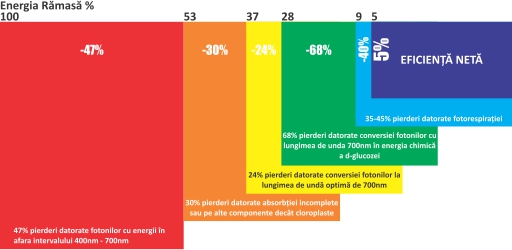ublo
bogdan's (micro)blog
bogdan » viziunea tinerilor asupra managementului de proiect
02:26 pm on Aug 3, 2012 | read the article | tags: ideas
Vă rog să mă ajutați să completez următorul chestionar (8 întrebări, fiecare cu variante predefinite de răspuns) legat de viziunea tinerilor asupra managementului de proiect:
bogdan » pinguino / manchester decoder / opentherm
09:28 pm on Jul 29, 2012 | read the article | tags: hobby
as a part of my PhD. studies i needed a simple interface to a central heating unit (CHU). searching the internet i found that most CHU are slave devices that use OpenTherm protocol for communication. i will bother you with that in a future post. for now, OpenTherm uses the Manchester code for sending and receiving information. as recently i’ve switched from arduino to pinguino (still using arduino for my work with students), here’s a small library that i use to decode the OpenTherm messages, that is versatile enough to be used for any Manchester code codec. it worked with a PINGUINO MX220 from Olimex. the tolerance for the bit timing is quite good: it correctly received data with bit lengths from 880uS to 1320uS. for other ranges tweak the defined constants.
// the code bellow is provided "as-is" with no warranty whatsoever
// also, this is a sketch and should be treated likewise
/* half the bit length */
#define OTHRM_BIT_TX0 500
/* threshold in microseconds for bit detection.
it should be larger than the fastest transition time,
yet it should consider the clock tolerance and the
speed of the CPU. for PINGUINO 32MX220 this worked */
#define OTHRM_BIT_RX0 300
/* maximum length of a bit, in microseconds */
#define OTHRM_BIT_RX1 1000
#include <delay.c>
/* the OpenTherm frame has 32 bits. for 8 bit processors, use an array */
volatile u32 OTHRM_FRAME;
/* this function sends the OTHRM_FRAME data through "pin" */
void othrm_tx (u8 pin) {
u8 c = 0;
/* start bit "1" of OpenTherm */
digitalWrite (pin, HIGH);
Delayus (OTHRM_BIT_TX0);
digitalWrite (pin, LOW);
Delayus (OTHRM_BIT_TX0);
/* actual data */
for (c = 0; c<32; c++) {
if ((OTHRM_FRAME >> 31) == 1) {
digitalWrite (pin, HIGH);
Delayus (OTHRM_BIT_TX0);
digitalWrite (pin, LOW);
Delayus (OTHRM_BIT_TX0);
}
else {
digitalWrite (pin, LOW);
Delayus (OTHRM_BIT_TX0);
digitalWrite (pin, HIGH);
Delayus (OTHRM_BIT_TX0);
}
OTHRM_FRAME <<= 1;
}
/* stop bit "1" of OpenTherm */
digitalWrite (pin, HIGH);
Delayus (OTHRM_BIT_TX0);
digitalWrite (pin, LOW);
Delayus (OTHRM_BIT_TX0);
}
/* receiving data from pin "pin". the data will be found in
OTHRM_FRAME */
void othrm_rx (u8 pin) {
u8 s = 1, c = 0;
u16 m = 0, t = 0;
OTHRM_FRAME = 1;
/* wait for the begining of the start bit. i need this.
for non-blocking operation you should include a timer
with a timeout. */
while (!digitalRead(pin));
for (c = 0; c<33; c++) {
OTHRM_FRAME <<= 1;
t = 0;
while ((s == digitalRead(pin)) && (t < OTHRM_BIT_RX0)) { t++; Delayus(1); }
s = digitalRead(pin);
OTHRM_FRAME |= !s;
t = 0;
while ((s == digitalRead(pin)) && (t < OTHRM_BIT_RX0)) { t++; Delayus(1); }
s = digitalRead(pin);
}
}
bogdan » eficiența fotosintezei
08:16 am on Jul 16, 2012 | read the article | tags: ideas
În numărul românesc al revistei BBC Science Focus din iulie-august 2012,la pagina 90 avem afirmația
«99% din energia luminii este folosită de o frunză în fotosinteză. Cele mai bune panouri solare au o eficiență de numai 38%»
Din nefericire pentru cititori, această afirmașie este în totalitate falsă. Folosind ca sursă bibliografică «Phtotosynthesis» de Hall, D.O și Rao, K.K, publicată la Cambridge University Press în 1999, în pagina 4 găsim următorul grafic:

Astfel spus, grandiosul 99% este de fapt un minuscul 5%. Din păcate pentru redactorii BSF, nici cu a doua parte a afirmașiei nu stau mai bine. Conform raportului NREL (National Renewable Energy Laboratory) de aici, la pagina 57 gasim că «The highest-efficiency research cell shown was achieved in 2010 in a multi-junction concentrator at 42.3% efficiency» (îl menționez deoarece se găsește și pe wikipedia) și lucrurile s-au îmbunătățit în ultimii doi ani până la 43.5%.
bogdan » nu ca ar interesa pe cineva. despre referendum
11:57 am on Jul 14, 2012 | read the article | tags: ideas
Nu că ar interesa pe cineva.
După părerea mea, Băsescu nu e Mesia – deși am crezut asta (votându-l în 2004). A avut șansa să dovedească acest lucru și n-a reușit (cei care mă contrazic să citescă înainte raportul de audit al comisiei europene care va apărea în zilele următoare, realizat în perioada 22/11/07 – 11/05/12). A fi de partea sau împotriva lui nu v-a schimba cu nimic corupția, nepotismul sau incompetența aparatului de stat și nici modul în care ne privește Europa (indiferent cine conduce, va fi aservit total intereselor UE și SUA – că așa suntem noi, românii, ne mulțumim cu firimiturile de la mesele celor mari și ne batem cu pumnul în piept că suntem importanți).
Avem nevoie de stabilitate – fiecare război politic ne are ca victime economice colaterale: euro crește, economia scade, programele se blochează etc. și cu cât prelungim această agonie, cu atât va fi mai rău pentru noi, nu pentru cei care se bat.
În mod normal nu merg la vot. Consider clasa politică uniformă, indiferent de culoarea politică partid, iar faptul că ne ne-am dezvoltat nu este meritul celor care ne conduc, ci al factorilor externi care ne târăsc în direcția progresului. În fașa urnelor, singurul lucru pe care il putem alege este dacă avem parte de mai mult sau mai pușin spectacol în perioada imediat următoare.
De data asta voi vota ”da” pentru demiterea președintelui.
Nu pentru că l-aș simpatiza pe Ponta (el pare de treabă, însă a dat-o cu bățul în baltă cu doctoratul și are în spate un partid găunos), nici pe Antonescu (mi se pare leneș – însă nu cred că e o atitudine proastă pentru un președinte – mai ales dacă citești constituția și vezi care-i rolul lui) și cu-atât mai mult pe Băsescu (un fel de Apartamentus Ruralus, înconjurat de pițipoance, care confundă croații cu craiovenii), ci pentru că îmi doresc liniște. N-o să se schimbe nimic cu USL la guvernare. N-o să fie țara mai coruptă și indiferent de ”apocalipsa” care va urma, veți putea s-o corectași în noiembrie, așa cum vă place vouă (că eu iar nu votez).

bogdan » sfaturi minime pentru supravietuirea on-line
01:02 am on Jul 11, 2012 | read the article | tags: remote
Facebook:
La Account Settings, Security activeaza urmatoarele optiuni: Secure Browsing, Login Notifications (minimum Text Message), Login Approvals.
GMail:
La Account Settings, Security activeaza optiunea 2-step verification.
Yahoo:
Încearcă să renunți la el. Problema lui principală este Yahoo!Messenger și vulnerabilitățile acestuia.
Parole servicii online:
Folosește clipperz.com. Eu folosesc pentru serviciile online parole aleatoare (lungi de 32 de caractere) stocate in contul clipperz.com. Astfel nu trebuie să rețin decât o singură parolă.
bogdan » 2+2=5
08:44 pm on Jul 3, 2012 | read the article | tags: ideas
«Nazi theory indeed specifically denies that such a thing as “the truth” exists. […] The implied objective of this line of thought is a nightmare world in which the Leader, or some ruling clique, controls not only the future but the past. If the Leader says of such and such an event, “It never happened”—well, it never happened. If he says that two and two are five—well, two and two are five. This prospect frightens me much more than bombs […]»
Eric Arthur Blair – Looking back on the Spanish War, 1943
bogdan » secretul succesului
12:07 am on Jun 7, 2012 | read the article | tags: zen!
am fost ieri seară la un seminar. ca observator. se vorbea de ceea ce-i împiedic? pe oameni să devin? antreprenori. extrapolând, se vorbea despre ceea ce-i limiteaz? pe oameni. concluzia mea? seteaz?-și un obiectiv. scrie-și pe o hârtie valorile și convingerile și compar?-le cu obiectivul t?u: vezi care te limiteaz? și care te poten?eaz?. renun?? la cele limitatoare. construie?te-și starea în care să ai performan?? maxim?. cre?te-și cercul de excelen?? pentru a produce modele și distileaz?-și o strategie. urmeaz?-și strategia acșionând prin absolut toate mijloacele și cu toate resursele de care dispui.
multumesc lui Chief pentru invitașie și citatul lui Neale Donald Walsch ”life begins at the end of your comfort zone.”
bogdan » masterchef
11:26 pm on Jun 6, 2012 | read the article | tags: ideas
pe scurt, despre rezultatul concursului:
C.M. Burns are o pagin? dedicat? în Forbes.
bogdan » scrisoare deschisa
11:52 pm on Jun 4, 2012 | read the article | tags: ideas
Domnule Profesor,
De când mă cunoașteți cred că ați observat că nu mă feresc să îmi spun părerea în fața dumneavoastra și având acest lucru în vedere, aș dori să răspund la provocarea adresată pe blogul dumneavoastr?. După părerea mea, guvernul Ponta și-a început prea devreme existența pentru a garanta succesul USL în alegeri. Singurul argument credibil pe care l-am auzit cu privire la această naștere prematură a fost împiedicarea fraudelor electorale portocalii (sau verzi).
Din păcate, USL a pierdut avantajul strategic al asediatorului ale cărui trupe și resurse erau în creștere, schimbându-l în statutul cuceritorului unei cantități insuficiente de resurse pentru a-și mulțumi în totalitate trupele. Lipsa prăzii de război cumulată cu heterogenitatea trupelor – în lipsa unor principii de bază comune sau a unui dușman comun – prevestesc erodarea accelerată a construcției USL. Dacă până în prezent argumentele țin mai mult de context, liderul cuceritorilor este o proprietate intrinsecă a acestora, fiind exponentul întregii structuri – iar un conducător care greșește constant, ignorând sfaturile consilierilor sub presiunea celor care l-au creat nu face decât să întunece orice pronostic. Pe scurt, eu cred că în urma alegerilor, USL va fisiona în PSD și ACD, urmând ca ACD să formeze o majoritate parlamentară fragilă cu urmașul reformat al PD-L și al traseiștilor politici de centru-dreapta (să arunc și o cifră, 52%).
În încheiere, parafrazez câteva idei din Sun Tzu (care se regăsesc și în teoria jocurilor a lui John Nash):
1. Lipsa unei visterii implică (aparent) lipsa hoților;
2. Apa evită înălțimile;
3. Dacă vrei să realizezi ceva, fă în așa fel încât să o facă dușmanii pentru tine;
4. Strategul îl atrage pe inamic și nu se lasă atras de el;
5. Sarcina principală a unui general este de a fi invincibil. Ocaziile de a obține victoria sunt furnizate de erorile adversarului;
6. Cel care știe când să atace face în așa fel încât celălalt să nu știe când să se apere.
Cu respect,
Bogdanel
bogdan » ars floris
05:44 pm on May 29, 2012 | read the article | tags: friends
am primit o poză cu cel mai recent aranjament Ars Floris – inițiativa anamariei și a lui flavius. dacă vă place nu ezitați să-i contactați pe site-ul lor www.arsfloris.ro.
find me:
in my mind:
- #artist 2
- #arts 4
- #away 3
- #bucharest 1
- #buggy 6
- #business 1
- #clothes 1
- #comics 1
- #contest 3
- #dragosvoicu 1
- #education 1
- #food 2
- #free-ideas 1
- #friends 14
- #hobby 23
- #howto 9
- #ideas 30
- #life lessons 4
- #me 59
- #mobile fun 4
- #music 51
- #muvis 17
- #muviz 13
- #myth buxter 1
- #nice2know 15
- #night out 1
- #openmind 2
- #outside 3
- #poems 4
- #quotes 1
- #raspberry 4
- #remote 56
- #replied 51
- #sci-tech 7
- #sciencenews 1
- #sexaid 7
- #subway 39
- #th!nk 5
- #theater 1
- #zen! 4

